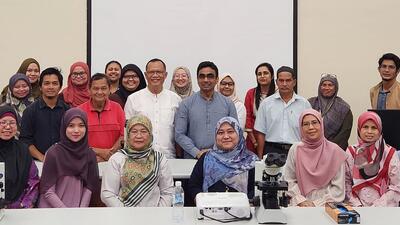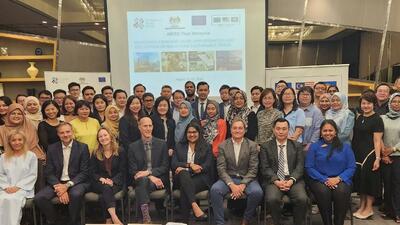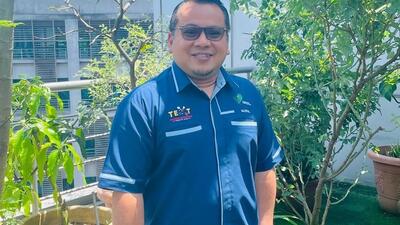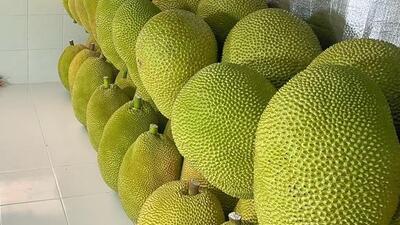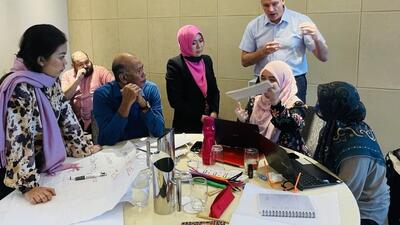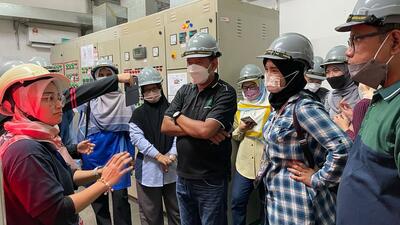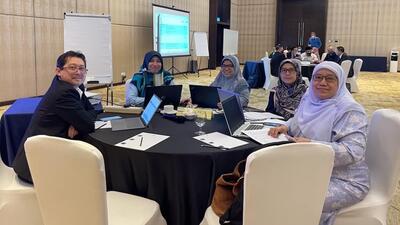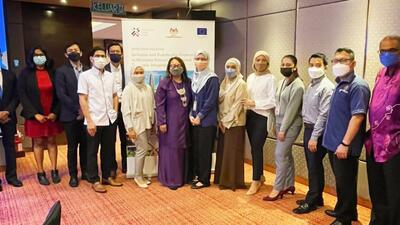
Supporting world class regulations for pesticide control
Mr. Nazrul Fahmi Abdul Raheem is happy he has gained knowledge that he would pass on to his colleagues at the Malaysian Pesticide Control and Fertilizer Division of the Department of Agriculture.
“We learnt about international best practices at the training. This will definitely help us in improving our own regulations about the use of pesticides,” the senior officer added in a video interview.
Along with 30 colleagues from his department and 40 colleagues from other divisions across the Department of Agriculture, he participated in a recent series of trainings to strengthen control of counterfeited pesticides and use of invertebrates as biological control agents (IBCAs).
IBCAs, also known as macrobials, are natural enemies of pests which include mites, insect predators, and parasites. As a first line of pest control, IBCAs are key elements in the integrated pest management systems in agricultural ecosystems in Malaysia, especially greenhouses, organic farms, and urban agriculture. The use of IBCAs worldwide responds to increasing consumer concerns on food safety and quality, as a safer alternative to the use of pesticides.
This workshop was a part of a series of trainings on the evaluation of pesticide registration dossier following internationally accepted methodologies; developing guidelines on simplified registration process of safer pesticides; human and environmental health and bio-efficacy assessment.
All guidelines were tailor made for use in Malaysia.
It also aims to train the Pesticides Board and staff of other relevant national agencies on the challenges in addressing trade, import, distribution and use of counterfeited pesticide.
Watch more here.
The final workshop in the series was held last month in Kuala Lumpur for 40 enforcement agents from the Department of Agriculture on the management of counterfeited pesticides.
Participants were trained on addressing challenges in trade, importation, distribution and use of counterfeited pesticides.
The training raised awareness on the various forms of counterfeited pesticides used; the dangers posed to food quality, safety and security; and international best practices.
These series of trainings were organized by ITC in partnership with the Department of Agriculture of Malaysia, as part of the ARISE Plus Malaysia project.
About the project
The ARISE Plus Malaysia project supports inclusive and sustainable economic growth in the country through enhancing sustainable business and investment environments, improving product quality and competitiveness, as well as enhancing sustainable and internationally quality-compliant practices in the agri-food sector.
The three-year project is funded by the European Union and is a part of its national and regional ARISE Plus projects to support greater connectivity and economic integration in ASEAN. The project is implemented in partnership with the Ministry of International Trade and Industry.






